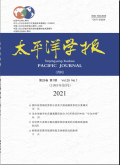太平洋学报2024,Vol.32Issue(6):25-47,23.DOI:10.14015/j.cnki.1004-8049.2024.06.003
领导权、区域韧性与安全需求:东盟安全力量建设之困
Leadership,Regional Resilience,and Security Demands:The Dilemma on the Construction of the ASEAN Security Force
摘要
Abstract
Summary:Projecting and constructing a systematic security arrangement that includes the security force under the framework of the Association of Southeast Asian Nations(ASEAN)is an issue proposed several times by the ASEAN countries while it has not been achieved yet.Existing research offers some explanations for the individual effects of the ASEAN way,the ASEAN countries'capabilities,or the impacts of major powers without providing a testable comprehensive analytical framework.Then,why has the ASEAN not yet built up its security force as an institutional arrangement? This article argues that three factors exert important impacts on the preferences and motivations of the ASEAN countries for the ASEAN security force:the ASEAN's leadership,the external validity of the ASEAN regional resilience,and the convergence of the ASEAN countries'security demands.We argue fur-ther that only when all these factors are situated in a condition simultaneously where there is a consensus be-tween the ASEAN countries on the ASEAN leadership,the relatively high level of external validity of the ASEAN regional resilience,as well as an increasingly convergent view on the security priorities within Southeast Asia,then there would be a significant improvement on the ASEAN countries'preference for the ASEAN-level security force.In this case,the ASEAN security force is more likely to be projected and ar-ranged.With this theoretical framework,we further analyze the ASEAN's relatively unsuccessful pursuit of the security force in its history in different phases including the Cold War phase(1967-1991),the mem-berships enlargement phase(1992-2003),and the high-speed development phase(2004-present)respec-tively.We find that the relatively low level of external validity of the regional resilience,the disagreement on the leading country in the field of security within the ASEAN,and the decreasing trend of convergence on the security demands among the ASEAN countries are challenges for the ASEAN security force construc-tion for the abovementioned three phases. In the future,the projection and construction of an ASEAN-level security force would remain an open question to both the ASEAN countries and other countries with great interests in Southeast Asia.However,it is noteworthy to investigate alternative approaches to security cooperation among the ASEAN and other countries to make the stability of Southeast Asia durable.关键词
东盟安全力量/领导权/区域韧性/安全需求/中国—东盟命运共同体Key words
the ASEAN/security force/security cooperation mechanism/China-ASEAN community with a shared future分类
社会科学引用本文复制引用
陈一一,刘冰..领导权、区域韧性与安全需求:东盟安全力量建设之困[J].太平洋学报,2024,32(6):25-47,23.基金项目
本文系2022年度国家社会科学基金青年项目"联合国维和行动发展态势及我国的参与研究"(22CGJ010)和2023年度高等教育科学研究规划课题"'一带一路'背景下中国教育走出去的新路径和新策略研究"(23BR0207)的阶段性研究成果. (22CGJ010)

